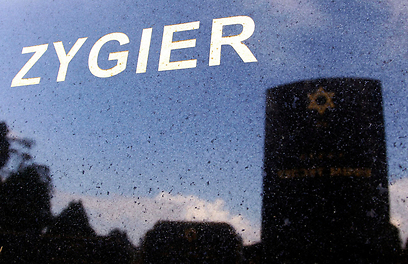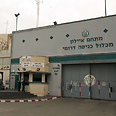The Prisoner Y
affair raises, allegedly rightfully, questions on whether the State of Israel
is indeed a law-abiding state. This is a fundamental question which may be relevant to each and every one of us as well: Are people being jailed in the State of Israel anonymously and in isolated secret cells according to the government's caprices, in the name of a vague security-related interest which almost no one knows for certain whether it is a fiction or a proven fact?
While we are mentioning him, we must also note that there have been several cases in Israel in the past in which the identity of people jailed in Israel Prison Service or Shin Bet facilities was unknown to the public due to security censorship, in addition to a legal gag order placed on the affairs they were involved in.
This isn't the first time. Several months ago, Knesset members and journalists raised similar questions in regards to an affair involving another anonymous prisoner; the person nicknamed X until an Australian television network identified him as Ben Zygier, a Mossad agent of Australian decent who was accused of committing a sin and then committed suicide in his prison cell.
Protocols
Naama Cohen-Friedman
Ben Zygier suicide's investigation protocol reveals disconnect between command staff, Prisoner X's section. Attorney who met with Zygier before his death claims more secret prisoners are detained in Israel
The response in the Knesset and media to the recent affair is raising concerns in the government. Proof can be seen in the urgent statement made by Chairman of the Knesset's Foreign Affairs and Defense Committee Avigdor Lieberman at the Knesset on Wednesday. The statement, which had a clearly apologetic tone, did not reveal anything new but likely failed to calm the concerned parties.
Therefore, it's worth inquiring – why all the secrecy? Why hide their names, the reason for their arrest and the offense they committed, and why keep them in torturing isolation and prevent them from making contact with other prisoners? Why torture people and keep information from the public, allegedly without any justification, in the name of sacred security?

Ben Zygier's grave in Australia (Photo: Reuters)
The cases of the two prisoners, Ben Zygier and Prisoner Y, appear to be very similar in their nature and severity. If we examine the Ben Zygier event, we may assume that he acted under a false identity and cover story when facing the hostile elements he collected information on or in any other secret activity he committed.
When a person with such a profession commits an offense, stands trial and his real identity is exposed and reported in the media (usually accompanied by a photo), the hostile elements he spied against can learn very important additional details about his mission even if he didn't tell them about it; and if he did, they can cross-check, verify its authenticity and find out new details which may be even more harmful – for example, who worked with him and helped him among the target population – thus, putting someone's life in immediate and serious danger.
There are cases in which an agent who sinned and is exposed is used by his original employers to transfer false information to the enemy. And there are many other options I won't elaborate on here.
There is no need to prove that Israel and its citizens are under a serious threat, and that it is therefore in the status of a democracy defending itself. Alongside being a law-abiding state, it must defend its security-related interests and those of its citizens.
Because maintaining the rights of the individual, like ethics and justice in general, are not a definite matter but require a balance between interests and basic values which sometimes contradict each other – in the case of Prisoner Y as well, the right balance appears to have existed between his legal rights and the need to protect the basic right of the State of Israel's citizens and emissaries for personal and national safety.

















